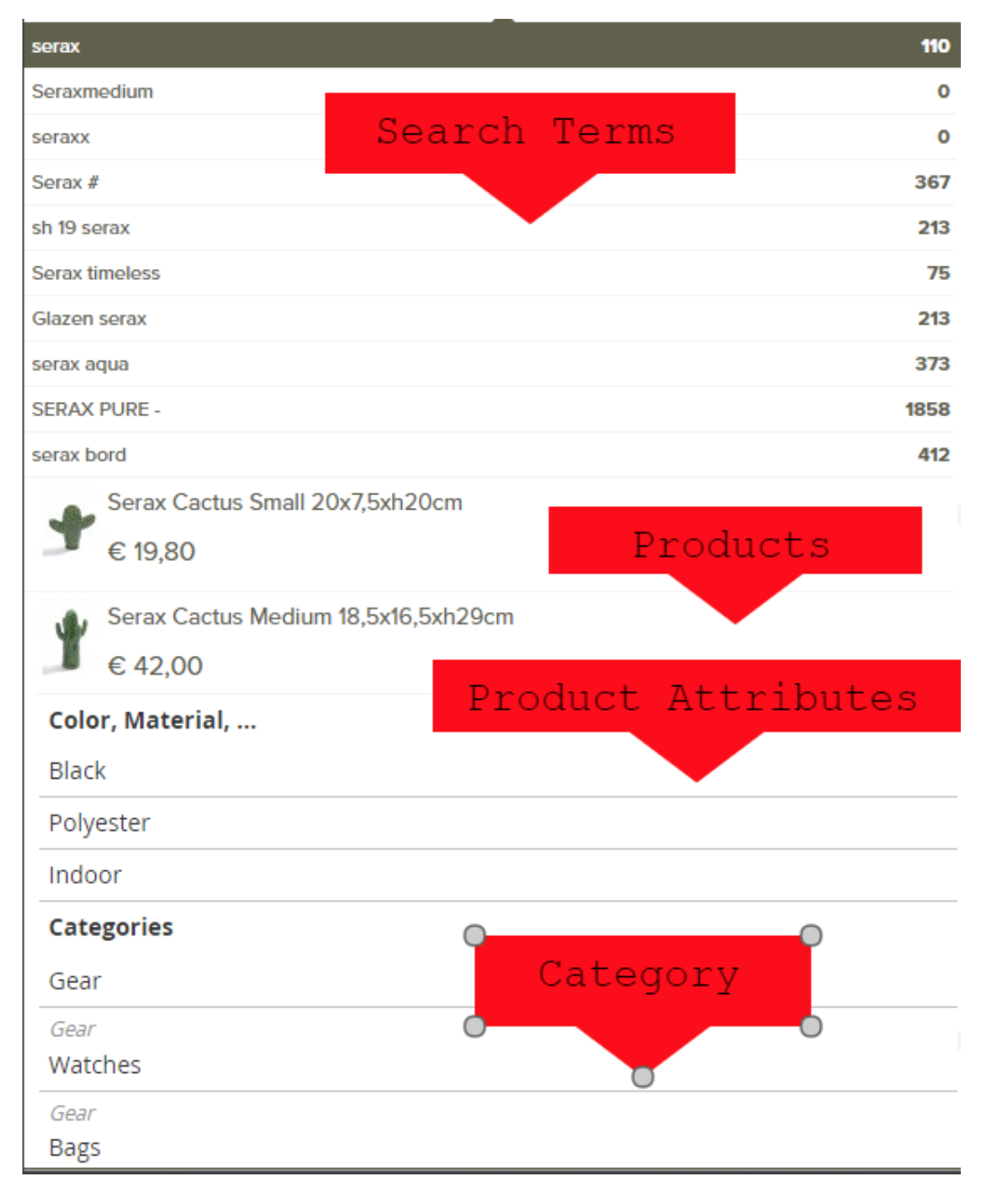
Key Takeaways
- A well-optimized eCommerce search engine is crucial for the success of an online store. Key features include breadcrumb navigation, facets for refining search results, sort by options, and auto-suggest functionality. These features help customers find products quickly and efficiently, improving their shopping experience.
- There are several technical products suitable for implementing search engines, including regular databases like MySQL, PostgresQL, MongoDB, Sphinx, Apache SOLR, ElasticSearch, and Amazon’s ES service and CloudSearch. The choice depends on the eCommerce application and the language it’s written in.
- Ecommerce search personalization is vital in today’s digital marketplace. By collecting and analyzing data about a customer’s online behavior, businesses can provide personalized product recommendations, improving customer satisfaction, increasing conversion rates, and average order value. However, challenges such as data privacy concerns and the complexity of data analysis need to be carefully managed.
This article was created in partnership with KTree. Thank you for supporting the partners who make SitePoint possible.
This article discusses various features that are essential for your eCommerce store’s search engine. If your store search experience is bad, your customer might hop to the next available site to make that purchase.
If you have huge a product catalogue, optimizing and organizing it and improving the search experience is key to the success of your store, and is the most important job of the eCommerce manager. Before we go further, let’s go over some key terms which will help us understand the article better:
- Category listing page or catalogue listing page: A list of products segregated based on category with filters/facets typically on the left side.
- Search result page: This is similar to a category listing page. The only difference is that the list of products may come from different categories.
- Customer: One who is visiting the site to make a purchase from your ecommerce store.
- Filter/facet: These are the options usually displayed on the left, up top, to narrow down product listings.
- Admin: You or your store eCommerce manager.
Minimum eCommerce Search Engine Features
Breadcrumb navigation
Breadcrumb navigation helps users get back to the previous category or page. This is normally available in ecommerce or CMS applications.

Facets
Facets give users the ability to iteratively refine or expand their search results and ultimately helps the user to browse the list of products which he intended to quickly. This filtering is now usually done via Ajax or using Single Page Applications to make the results load faster.
- Refine or expand results
- Show the count for each filtering option
- Show only popular filtering options — for the rest, provide a ‘More’ link.
- Show certain filtering options as a range of values

- These facets/filters are product attributes and they should be configurable, meaning a product attribute should have config settings to make it searchable and to show as facet or filter in the catalogue list view.
Sort By
Users should be able to sort the search results. For example, sort Price (Low to High) helps the user find products in the budget range they’re looking for.

Various ‘Sort By’ options which are normally found in eCommerce search engines:
- Price (Low – High)
- Brand (A – Z)
- Best match
- Created date
- Category
- Sorting order options, such as newly added products first
- Sort by reviews
- Sort by best sellers
- Recommended products
- Featured
Auto-suggest Functionality
Made popular by Google’s search engine, this helps the user to choose the product based on a few letters entered. This helps customers search products with keyword or partial key terms, or some other attribute of the product. Typically, this is one of the most used features that customers use to search for products.
In auto-suggest, these can be displayed:
-
Search terms: These are the terms that were already searched by other users on your sites. These can be created by store admins, and if necessary synonyms can be added to search terms. See the next picture.
-
Actual products.
-
Attributes of the products, such as color or size.
-
If there is no result, or too few results, we can correct the user by using ‘Did you mean’ or auto-correct functionality.

Other advanced eCommerce search functionalities:
- Search within result
- Enhance search with snippets & highlights
- Enhance search with redirects to a particular page
What Technical Products Are Best for Search Engines?
There are plenty of choices for implementing search engines, and again it depends on your eCommerce application and the language which it is written in. In general, these are good suggestions:
- A regular database (MySQL, PostgresQL, MongoDB).
- Sphinx: Sphinx is a full text search engine that provides text search functionality to client applications.
- Apache SOLR: Open-sourced by Apache, SOLR is a merged effort of the former SOLR and Lucene. This is also one of amongst the popular option available.
- ElasticSearch: ElasticSearch is currently the number one leader in the search market. This product is also open source, and also a fork of Lucene.
- Inbuilt cluster.
- Has many features out-of-the-box.
- Plugins are typically available for major ecommerce platforms such as Magento and OpenCart.
- Amazon ES service: Amazon AWS’s provided service for ElasticSearch.
- Amazon CloudSearch: An Amazon AWS product, can be used as a solution for your eCommerce search engine.
Frequently Asked Questions on Ecommerce Search Personalization
What is the importance of ecommerce search personalization?
Ecommerce search personalization is crucial in today’s digital marketplace. It enhances the shopping experience by providing customers with personalized product recommendations based on their browsing history, preferences, and behavior. This not only improves customer satisfaction but also increases conversion rates and average order value. It also helps businesses understand their customers better, enabling them to tailor their marketing strategies more effectively.
How does ecommerce search personalization work?
Ecommerce search personalization works by collecting and analyzing data about a customer’s online behavior, such as their search queries, browsing history, and purchase history. This data is then used to create a personalized shopping experience, showing customers products that are most relevant to their interests and needs.
What are the benefits of using AI in ecommerce search personalization?
AI can analyze large amounts of data quickly and accurately, making it an invaluable tool for ecommerce search personalization. It can identify patterns and trends in customer behavior, predict future behavior, and provide personalized product recommendations. This can significantly improve the shopping experience, leading to higher customer satisfaction and increased sales.
How can I implement ecommerce search personalization on my website?
Implementing ecommerce search personalization requires a combination of data collection, analysis, and application. You’ll need to collect data about your customers’ online behavior, analyze this data to identify patterns and trends, and then use these insights to personalize the shopping experience. This can be done using various tools and technologies, including AI and machine learning.
What are some common challenges in implementing ecommerce search personalization?
Some common challenges include data privacy concerns, the complexity of data analysis, and the need for continuous optimization. It’s important to handle customer data responsibly and comply with all relevant privacy laws. Additionally, analyzing customer data and using it to personalize the shopping experience can be complex and requires specialized skills and technology.
How can I overcome these challenges?
Overcoming these challenges requires a combination of careful planning, the right technology, and ongoing optimization. You’ll need to have a clear strategy for collecting and analyzing customer data, choose technology that fits your needs and capabilities, and continuously monitor and optimize your personalization efforts based on customer feedback and performance data.
What are some best practices for ecommerce search personalization?
Some best practices include using a combination of explicit and implicit data, personalizing the entire customer journey, and continuously testing and optimizing your personalization efforts. It’s also important to balance personalization with privacy, ensuring that you’re providing a personalized experience without infringing on your customers’ privacy.
How does ecommerce search personalization affect SEO?
Ecommerce search personalization can have a positive impact on SEO by improving the user experience and increasing engagement. By showing customers products that are relevant to their interests and needs, you can increase the time they spend on your site and the likelihood that they’ll make a purchase, both of which can boost your SEO rankings.
Can small businesses benefit from ecommerce search personalization?
Absolutely. Even small businesses can benefit from ecommerce search personalization. By providing a personalized shopping experience, small businesses can differentiate themselves from their competitors, build stronger relationships with their customers, and increase their sales.
What is the future of ecommerce search personalization?
The future of ecommerce search personalization is likely to be driven by advances in technology, particularly AI and machine learning. These technologies will enable even more accurate and sophisticated personalization, improving the shopping experience and driving increased sales. Additionally, as customers come to expect more personalized experiences, businesses that fail to implement personalization may find themselves at a competitive disadvantage.
Ismail is CEO of KTree.com with two decades of experience in Information technology. Initial work experience in SAP helped him hone his development and functionality skills. Now Ismail works is to architect solutions using web development technologies ranging from PHP, Java, JavaScript, Linux and AWS Cloud Development and which is what KTree excels in. He mainly focuses on Performance Optimization on the web, reducing page load time being his favourite. He loves to do cycling and play badminton in his free time.




